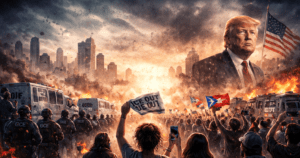In her first major public appearance since the 2024 election defeat, former Vice President Kamala Harris delivered a scathing critique of President Donald Trump’s administration. Speaking at the Emerge America gala in San Francisco, Harris condemned the current administration’s policies, warning of economic turmoil and a potential constitutional crisis. Her speech not only marked a significant political reemergence but also set the tone for the Democratic opposition moving forward.
Economic Policies Under Fire
Harris did not mince words when addressing the economic direction of the Trump administration. She labeled the president’s tariff strategies as “reckless”, asserting that they are “clearly inviting a recession”. Highlighting the tangible impacts, Harris pointed to rising costs for everyday essentials and the strain on American businesses, both large and small, which are being forced to make difficult decisions regarding hiring and investments. She described the situation as “the greatest man-made economic crisis in modern presidential history”, emphasizing the urgency of reevaluating current economic policies.
Erosion of Democratic Norms
Beyond economic concerns, Harris expressed deep apprehension about the state of American democracy. She accused the Trump administration of a “wholesale abandonment of America’s highest ideals”, citing actions that undermine the rule of law and the system of checks and balances. Harris warned that such measures could lead the nation toward a constitutional crisis, where fundamental rights and freedoms are at risk. She emphasized the importance of civic engagement, stating that the people’s voice remains the ultimate safeguard for democracy.
A Call to Action and Unity
Harris’s speech was not solely a critique; it was also a rallying cry. She praised individuals and institutions resisting the administration’s policies, from judges upholding the rule of law to everyday Americans advocating for their rights. Drawing inspiration from a viral video of elephants protecting their young during an earthquake, Harris used the metaphor to illustrate the importance of unity and collective action in times of crisis. She urged Americans to remain steadfast, reminding them that “courage is contagious” and that the nation belongs to its people, not any single leader.
Implications for the Democratic Party
Harris’s reentry into the political arena comes at a pivotal moment for the Democratic Party. With discussions about potential candidates for the 2026 California gubernatorial race and the 2028 presidential election already underway, Harris’s influence and decisions could significantly shape the party’s direction. While she did not announce any specific plans, her speech reaffirmed her commitment to public service and her role as a leading voice in the Democratic opposition.
A Final Note
Kamala Harris’s return to the national spotlight is not merely a symbolic act of defiance—it signals the recalibration of Democratic leadership in the face of Donald Trump’s entrenched political resurgence. Her San Francisco speech, while sharply critical of Trump’s first 100 days back in office, was ultimately more about reasserting the ideological stakes ahead. By framing the administration’s policies as not just flawed but dangerously destabilizing to both the economy and constitutional order, Harris is crafting a narrative that seeks to galvanize both disillusioned moderates and progressive activists.
Strategically, the speech repositions Harris not just as a past vice president but as a continuing ideological leader within a party still searching for its post-2024 identity. It marks a shift from electoral postmortem to forward-looking engagement. The invocation of collective courage, institutional guardrails, and civic responsibility is less about immediate political gain than about laying groundwork for long-term resistance—possibly a prelude to reentry into elected office or a leadership role in shaping the party’s legislative agenda.
Crucially, Harris’s critique intersects with growing anxieties among Democrats about institutional erosion and economic precarity under Trump 2.0. Her articulation of these themes offers a blueprint for how the party might organize its opposition in a way that is both values-driven and policy-grounded. Whether this speech becomes a springboard for a gubernatorial run in California or a more national political role, it makes clear that Harris intends to remain a central figure in the coming contest over the nation’s democratic and economic future.















